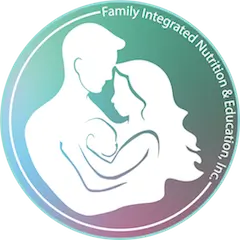Why Supplements Matter: Supporting Nutrition as We Age
Author: Dr. Jimi Francis, PhD, IBCLC, RDN, LD, RLC
Today, I was asked why I’d recommend taking a nutritional supplement when I’m a functional nutritionist. It’s a great question! My goal is always to prioritize whole, nutrient-dense foods. However, getting adequate nutrients from food alone can be challenging, especially for older adults. Here’s why:
1. Declining Nutrient Levels in Foods
Modern agricultural practices, soil depletion, and long storage times mean that even the healthiest foods often have fewer nutrients than they once did. For example, studies show that the mineral content in fruits and vegetables has dropped significantly over the last few decades.
Dr. Jimi’s Substack is a reader-supported publication. To receive new posts and support my work, consider becoming a free or paid subscriber.
2. Reduced Appetite and Food Intake
As we age, factors like slower metabolism, dental issues, or changes in taste can lead to eating less food overall. Even a well-balanced diet might fall short simply because of reduced portions.
3. Absorption Challenges
Aging affects the body’s ability to absorb nutrients. For instance:
- Stomach acid levels decline, making it harder to absorb B12 and calcium.
- The body’s ability to convert sunlight into vitamin D diminishes.
- Chronic conditions or medications can interfere with absorbing essential vitamins and minerals.
4. Increased Nutritional Needs
Certain nutrients become even more critical as we age:
- Calcium and vitamin D for bone health.
- Omega-3 fatty acids for brain and heart function.
- Magnesium for muscle and nerve support.
It’s not always feasible to meet these elevated needs through food alone, especially if dietary restrictions or health issues are involved.
5. Lifestyle Factors
Busy schedules, limited access to fresh food, or dietary preferences (e.g., vegetarian or vegan diets) can make achieving a well-rounded intake of essential nutrients harder.
Supplements: A Complement, Not a Replacement
When I recommend supplements, I never replace real food but fill in the gaps where food routines may fall short. I’m about giving your body the tools needed to thrive, particularly during life stages when nutritional demands are higher or absorption becomes less efficient.
For older adults, supplements like vitamin D, magnesium, omega-3s, or a well-balanced multivitamin can be game-changers for maintaining energy, protecting cognitive health, and promoting longevity.
The Bottom Line
Functional nutrition is about creating a personalized approach to health. Supplements are one part of that picture, used strategically to ensure your body gets everything it needs to function optimally.
What’s your biggest challenge when it comes to eating healthy? Let’s talk solutions.
References
Davis, D. R., Epp, M. D., & Riordan, H. D. (2004). Changes in USDA food composition data for 43 garden crops, 1950 to 1999. Journal of the American College of Nutrition, 23(6), 669–682. doi:10.1080/07315724.2004.10719409
Morley, J. E. (2001). Decreased food intake with aging. The Journals of Gerontology Series A: Biological Sciences and Medical Sciences, 56(suppl_2), 81–88. doi:10.1093/gerona/56.suppl_2.81
National Institutes of Health. (2022). Vitamin D: Fact sheet for health professionals. Retrieved from https://ods.od.nih.gov
Gropper, S. S., Smith, J. L., & Carr, T. P. (2020). Advanced Nutrition and Human Metabolism. Cengage Learning.
Dwyer, J. T., Coates, P. M., & Smith, M. J. (2018). Dietary supplements and health: Overview on efficacy and safety. Nutrition Reviews, 76(9), 501–515. doi:10.1093/nutrit/nuy025
For more articles like this Subscribe to Dr. Jimi’s Substack, a reader-supported publication. To receive new posts and support her work, consider becoming a free or paid subscriber.
Schedule a Personalized Nutrition Consultation with Dr. Jimi Francis CLICK HERE.
©copywrite Dr. Jimi Francis, 2024
